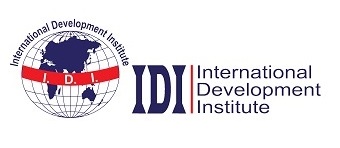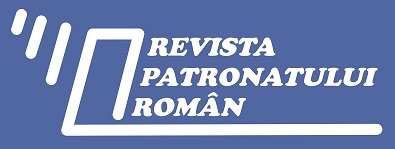Greeting from International Development Institute (IDI), Washington, D.C., United States!
 The International Development Institute (IDI) is accepting applications for the Leadership Program for Education Authorities (LPEA), Improving Learning Outcomes at the School Level Post-Pandemic, online/E-Learning Workshop, training program, scheduled to begin on Monday, August 2, 2021, and will end on Friday, August 6, 2021, from 9:15 AM to 11:15 AM Eastern Standard Time (United States and Canada).
The International Development Institute (IDI) is accepting applications for the Leadership Program for Education Authorities (LPEA), Improving Learning Outcomes at the School Level Post-Pandemic, online/E-Learning Workshop, training program, scheduled to begin on Monday, August 2, 2021, and will end on Friday, August 6, 2021, from 9:15 AM to 11:15 AM Eastern Standard Time (United States and Canada).
Download Application and Brochure for LPEA training July, 2021
*4:15 PM to 6:15 PM, Bucharest, Romania (local time).
The LPEA training is one of the training programs organized by the International Development Institute (IDI). Participants in IDI’s training programs come from Africa, Caribbean, Middle East, Europe and Asia. I suggest that you visit our website for additional information: www.idiworldwide.net
The LPEA training program is designed for Policy Makers and Education Authorities at a federal and municipal level, designed to expose and equip policy makers and education authorities with the leadership and management skills that are needed to effectively handle the responsibilities and continuously drive school reforms in changing and challenging environments, like in the case of the current COVID-19 crisis, a crisis that has impacted schools across the globe.
Our faculties come with advanced degrees from renowned universities such as Harvard and have extensive experience with and a clear understanding of developing country contexts. They have reviewed the latest pandemic and post-pandemic transformations and the new reality of integrating technology into teaching and learning.
Click on the Time Conversion Tool to find actual time of training in your country/location.
New applications must be submitted by Friday, July 23, 2021, 11:00 PM Eastern Standard Time (EST). You can access the LPEA training online application by clicking on the hyperlink below:
LPEA Training Application Form
**Certificates will be issued to those who successfully complete the full training.
And after two (2) to three (3) months of completing the LPEA training, participants who completed the full training will have the option to participate in a two (2) to three (3) days follow up training – training which is intended to assess (i) how participants benefited from the LPEA training AND (ii) how participants are applying the knowledge gained to their profession/career.
** International Development Institute (IDI) can also organize LPEA training for a specific group/team of at least 15+ participants, at a time and date(s) that fits the group. We suggest that the education ministry in Romania nominates officials from the education and youth development ministries, including key planners and decision- makers in the education sector, who are highly motivated and will return with ideas and inputs to plan and strategize for the future of education in Romania.
** Please share this Education Post Pandemic Leadership (LPEA) training announcement with your colleagues/professional network(s) in Romania, who may find the training beneficial.
The tuition fee for the training per applicant/participant is $750.00 (Seven Hundred Fifty United States Dollars) for all sessions. There is a 10% discount to organizations that register four (4) or more employees to attend the procurement training. The discount will be applied towards the total cost of training for four or more employees.
*Tuition fee payments must be paid by Monday, July 26, 2021, 11:00 PM (EST). After you submit your application, a separate email containing an invoice and payment instructions, will be sent to you.
Sincerely,
Elizabeth Kasonde
Visit us on facebook
Elizabeth Kasonde
Program Coordinator, http://idiworldwide.net – International Development Institute 1629 K Street, NW, Suite 300, Washington, D.C., United States
Tel. +1 571-348-1188 (United States); Direct & WhatsApp Number +1 267-319-2990 (United States)
LEADERSHIP PROGRAM FOR EDUCATION AUTHORITIES ( LPEA) SERIES
IMPROVING LEARNING OUTCOMES AT THE SCHOOL LEVEL POST- PANDEMIC
A Program Designed for Education Authorities at the Federal and Provincial Levels
E- LEARNING WORKSHOP BY INTERNATIONAL DEVELOPMENT INSTITUTE 2 – 6 , AUGUST, 2021
IMPROVING LEARNING OUTCOMES AT THE SCHOOL LEVEL POST-PANDEMIC
Introduction
A post-COVID-19 context in the education sector glocally is expected to include a return to a significant level of pre-COVID 19 ‘normalcy’ as well as permanent integration and institutionalization of a significant number of shifts developed during the pandemic. The ‘new normal’ in the education sector will include small to significant transformations in
- the educational experience of children given the more blended approach in teaching involving technology and emergent pedagogical approaches and learning assessments;
- the roles and responsibilities of teachers, headteachers, and parents in the education process as they learn to systematically accommodate and institutionalize criteria-based ‘social distancing’ and other lessons learned from the pandemic for the longer term; and
- overall school physical environments, and availability and management of human and financial
Given the above changes taking place in the education ecosystem, education authorities in developing countries at the federal and provincial levels need to swiftly understand the specifics of the transformations in their country and local contexts and develop strategic directions for the future. Such strategies would help them to not just cope with the changing circumstances but could help them to take this critical planning process to enhance and improve the system’s overall performance. Currently, the planning capacity among education authorities is generally weak. The pandemic has generated a period of ‘wait and see’ given the uncertainties of how and when it would end. Now that vaccines are available there is end in sight and the future planning process needs to begin in earnest.
What information and frameworks for analysis of the current state of the education ecosystem are important? How should the federal and provincial authorities start to set goals, identify gaps, learn from successful examples and build up their capacity?
This five-day course will strengthen the capacity of senior education officials working in different countries.The objective of the course will be to build their leadership capacity to better understand the new reality; revisit and reevaluate their existing plans and develop new strategic directions; set newly calibrated vision and goals; build capacity to collect and analyze data, prioritize and assess and plan to overcome implementation challenges, including political economy challenges; and monitor and evaluate their performance towards set goals. The program is designed for both policy makers and officials involved in the day to day implementation of education programs at the federal and provincial levels. Exchanges between these two critical groups will not only engender greater learning of the challenges but also help generate new and innovative ideas. The LPEA will:
– help leaders envision, develop and implement measures to enhance the performance of the education ecosystem they are responsible for
– help build groups of drivers and change agents with innovative ideas with in the education ecosystems in the participating countries
– build new and supportive alliances among policy makers and implementers, and generate ideasfor creating networks across countries to share ideas and capacity as needed
Program
The course is designed to expose and equip education policy makers and implementation authorities with the analytical, leadership, and management skills they need to effectively handle their responsibilities and continuously drive reforms in these fast changing and challenging environment. The program will provide participants with an opportunity to learn directly from global experts, policy leads, and practitioners. In particular, faculty from Singapore will provide highly innovative solutions they have implemented successfully and that could potentially be replicated elsewhere.
Course Structure
The course is designed to take advantage of diversity and varied experiences of presenters and participants. Emphasis will be placed on learning of and critiquing existing best practices. Participants will get opportunities to reflect on their knowledge base and skills and identify opportunities to apply course learning to their unique national and school contexts.
Day 1: Setting Goals and Strategy for the Post-Pandemic Context
Participants will learn about how education systems in different countries and communities have been coping with the pandemic and learn frameworks and typologies that will help them to set realistic goals, prioritize cost-effective interventions, and craft appropriate strategies that meet student and teacher needs and parental aspirations. They will also learn to mobilize and manage human and financial resources in the community to strengthen schools within their jurisdictions to meet the learning and socio- emotional, and developmental needs of students.
Day 2: Innovations in Curriculum, Teaching and Learning
Participants will learn about innovations in curriculum, teaching and pedagogy, and learning environments with a special focus on the use of technology for students at various levels of education. Drawing upon a number of pedagogical policies and practices in Singapore (e.g. Thinking Schools, Learning Nation, ICT Master Plans, Effective Teaching to Engaged Learning) and elsewhere, this presentation will showcase multiple options available for improving the teaching and learning for students post-pandemic. The session will also focus on strategies for enhancing teacher and student engagement with learning, building teacher capacities for engaged learning and professional collaboration and partnering with parents to enhance a wide range of learning outcomes.
Day 3: Incentivizing Teachers, Staff, Parents and Students
In the post-pandemic context, incentives and accountability structures will remain critical pillars for improving system performance and outcomes. In this class, participants will learn about the numerous findings from randomized control trials and evaluations from around of the world on ‘what works’ for improving learning outcomes of students through the provision of various forms of incentives and accountability measures.
Understanding incentive structures that work in other country contexts will help the participants to better assess gaps in their own education ecosystems and where their incentives and accountability frameworks need tweaking post-pandemic. Participants will also be introduced to more effective teacher and parentempowerment strategies.
Day 4: Decision Making with Data
This class will take a practical approach to solving challenges in the changing education landscape using data analytics. It will provide participants with practical experiences of undertaking data analytics to address common challenge they face in the education space. We have also witnessed a proliferation of mobile technology and social media. Recent advances in data science are now capable of coping with the technical challenges of collecting, managing and developing actionable insights from big data. Partnerships between academia, government and the private sector are at the heart of the revolution. The class will provide the introduction to applying machine learning techniques to large real-world datasets in order to facilitate knowledge discovery, predictive analytics and decision- support.
Day 5: Leading Oneself, Others and Teams
Post-pandemic period calls for leadership that utilizes effective strategies to drive educational excellence while also reviewing, developing and implementing a new vision and mission for the education sector. Participants will be introduced to effective leadership and management strategies, and ways to motivate and empower staff in order to drive the agreed reforms.
Who Should Attend?
Key education policy, planning and implementation authorities at the federal and provincial levels
Heads of educational institutions— from any type of educational institute such as schools, colleges and universities
Development Partners, NGOs, and other non-state education stakeholders Students of Education Management
Training Schedule
Participants have to complete all modules to receive their certificate of completion. All workshop sessions are scheduled at the times shown and will last for 90 minutes.
Certificates of completion will be issued by IDI and George Mason University (USA).
OUR FACULTY
Prof S. Gopinathan, Ph.D has been extensively involved in Singapore’s education policy and practice planning for over four decades. He is a leading contributor to teacher education in Singapore and the region. He served as the Dean of the School of Education/ National Institute of Education, Singapore, from 1994 to 2000. He presently serves as Academic Advisor toThe HEAD Foundation. In 2003, he helped NIE establish the Centre for Research in Pedagogy and Practice. He has served on numerous Ministry of Education review committees, including the Thinking Schools, Learning Nation and Junior College-Upper Secondary review Committee. Prof. Gopinathan was also involved in setting up the Singapore Centre for Teaching Thinking, the Principals Executive Center and is also a founder member of the Educational Research Association of Singapore. He has also served as a consultant for the World Bank, UNESCO, the ADB and the Commonwealth of Learning. In 2000, he was awarded the Distinguished Alumnus Award by the State University of New York (SUNY) Buffalo and in 2001, the Singapore Government’s Public Administration Medal (Silver) for services to education.
Arun R. Joshi, Ed.D is Principal Consultant of IDI, Founder of Leadership Academy Nepal (LAN) and a Director of the Center for Human Assets at the Institute for Integrated Development Studies (IIDS) in Kathmandu, Nepal. He is also an Adjunct Professor at George Washington University, Washington D.C. He worked at the World Bank, Washington D.C. for over two decades. His experience spans education policy reform and program development in a diverse range of countries in the Middle East, Africa, and South Asia. He has a master’s degree in international education policy and a doctorate in human development from Harvard University.
Molly Teas, Ed.D is an education specialist with in-depth knowledge and interest in empowering communities through communication and storytelling. She began her professional journey about 30 years ago when she visited Nepal and helped women and girls through empowerment projects in a rural village in Western Nepal. She served as a Senior Advisor for Education for the U.S. Department of State. She developed a partnership between the U.S. Government and Room to Read, a nonprofit focused on literacy and gender equality in education. She has also served as a Director of Education for Millennium Challenge Corporation and as an Executive Director- Capacity Building in Science for International Council for Science. Dr. Teas completed her Ed.D and Ed.M in Education from Harvard University.
Padmanabhan Seshaiyer, PhD is a bold visionary leader who combines strong administrative experience with a successful academic research background, education, and outreach. He is a tenured Professor of Mathematical Sciences and serves as the Associate Dean for Academic Affairs for the College of Science at George Mason University.
He also serves as the Director of COMPLETE (Center for Outreach in Mathematics Professional Learning and Educational Technology) at GMU. His research interests are in the broad areas of computational mathematics, computational data science, scientific computing, computational biomechanics, design and systems thinking, entrepreneurship, and STEM education. He has a Ph.D. from the University of Maryland. In 2019, he was selected as Figures that Matter and awarded an honorary doctorate from Vrije Universiteit Brussel.
TESTIMONIALS
„The program is an opportunity for school leaders to learn from the situation of other leaders in schools and other fields. It has given the participants a road trip to the failures and success stories of other people that will be a big help in understanding leadership processes and management of people.” – Domingo A. Lozande, Philippines
„I will empower my teachers with training and sharing sessions to enhance the online classes, motivate them to move ahead coping the new normal. I will also form a post pandemic school operations committee which will prepare all possible models to run school after pandemic. – Pravin Desar, Nepal
„The topics are timely and very relevant. The lecturers are great. It’s timely that I attended this training, to which the learning can be applied to a greater number of learners and teachers and educational leaders.Thank you very much hoping that when a similar activity will be facilitated, participants from Aurora Divisioncan be given a chance to join too.” – Danilo M Jacoba, Philippines
„The training offered more than what I expected. I could learn some effective approaches. I would work more on building a strong relationship with my teachers, staff, parent and student as i learnt relationship is the only thing that contributes in strengthening that bond between the major role player for schools development. I would also implement TLLM approach to motivate effective learning during online classes”- Junita Karki, Nepal
„The presenters/faculty are versatile and prolific in terms of content and pedagogies. All sessions are very engaging and insightful” –Roderick D. De Leon, Philippines
CANCELLATION AND REFUND POLICY
- Training course registrations will not be confirmed until registration is complete and billing information is received in
- In order to cancel, please submit an e-mail request to training@idiworldwide.net .
III IDI will refund 50% of deposits for all other cancellation requests with less than 7 days prior to the scheduled course date.
- No-shows and cancellations not made within the specified cancellation period will incur the full cost
- All cancellations must be made in
SEND NOMINATIONS AND INQUIRES:
Please send in nominations for our upcoming training on “IMPROVING LEARNING OUTCOMES AT THE SCHOOL LEVEL POST- PANDEMIC” by emailing. us at training@idiworldwide.net.
SEND QUESTIONS:
For any other information or general query about the institute or information about other training programs, send an e-mail to info@idiworldwide.net
Program Dates: 2nd – 6th August 2021 Cost: $750
Time: 9:15 AM – 11:15 AM EDT
Enrollment Deadline: 23rd July, 2021 Payment Due: 26th July, 2021
About Us
International Development Institute (IDI) is a learning institute based in Washington, D.C. with the objective of promoting development and global understanding through knowledge transfer and exchanges. lDl provides capacity building and institutional strengthening programs through short-term courses, projects, training, workshops, and study tours. At lDl, we believe that knowledge-sharing and exchanges are crucial for the development of community and country. lDl offers demand driven world class training and capacity building to help produce effective leaders around the world.
George Mason University, United States is a Virginia’s largest public research university. Mason is setting the benchmark for a bold, progressive education that serves the needs of students and communities. GMU has 10 schools and colleges devoted to a variety of areas of study. With 36,000 students from all 50 states and 130 countries and a residential population of more than 6,000 students George Mason University is a vibrant and dynamic community of scholars and offers over 200-degree programs.














